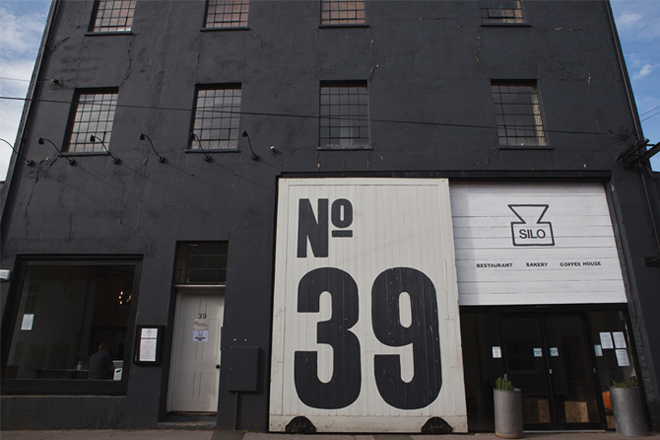Brighton-based husband and wife team, Baines&Fricker, has recently completed an ethical and functional interior for Silo – the UK’s first zero-waste restaurant.
Silo describes itself as a pre-industrial food system that generates zero waste. They mill flour, make yoghurt, roll oats, bake bread, brew vinegar and beer, culture cream, grow mushrooms, cure meat, deal directly with farmers and compost all food scraps in-house.
The design for the interior thus needed a conscious design company. Baines&Fricker were a natural partnership: a local business with a passion for ‘long-lasting design’ and ‘an ability to elevate the mundane and unremarkable.
Silo founder, Douglas McMaster wanted an overall design that was pure, raw, undone and in keeping with the philosophy of his food. Using a local non-profit-making community project that ‘uses and shares unwanted goods’, Baines&Fricker repurposed old school tables and used office floor insulation to make tables and bench seating. These designs are coupled with modular stools and chairs made from sterling board (OSB).
Everything was produced from abundant readily-available materials and follows the restaurants belief in using everything and using the overlooked.
About the designers
Having left college at 16, Steve Baines worked in the city until nine years ago, when he made the decision to retrain as a furniture maker. Eliza Fricker went to art college to study studio art and photography, and then went on to manage an art house cinema. Shortly after having their daughter in 2008, Eliza learnt screen printing, and discovered a new passion. Together they make up design duo, Baines&Fricker.
Who was inspirational to you early on in your careers and why?
Other creative couples such as the Eames or Days … We saw an exhibition at the Moma in New York and it included the letter the Eames had written to each other. We could relate to this excitement we have all the time when talking about things we’ve seen or read.
How would you describe your design ethos?
We strongly believe in investment pieces of furniture … We are not interested in trends or fashion as this creates throwaway/disposable design. We like to design products that you will cherish and keep. My parents still have furniture in their homes that they remember where it was bought and a story behind it.
How did you go about the design process for Silo?
Douglas McMaster had a strong idea and belief in how the concept should be. With such a strong ethos it was fairly easy to keep the design relevant to this. Everything had to be functional and there for a reason. We like working within this framework anyway so it all came together cohesively.
What was the biggest challenge you faced?
The biggest challenge on a large project is always the many people involved and conflicts of interests … and time. There is never enough time … or money!
Have you got any more commercial projects in the pipeline?
We had a very exciting meeting in the autumn with a hotel company and also some other restaurants.



